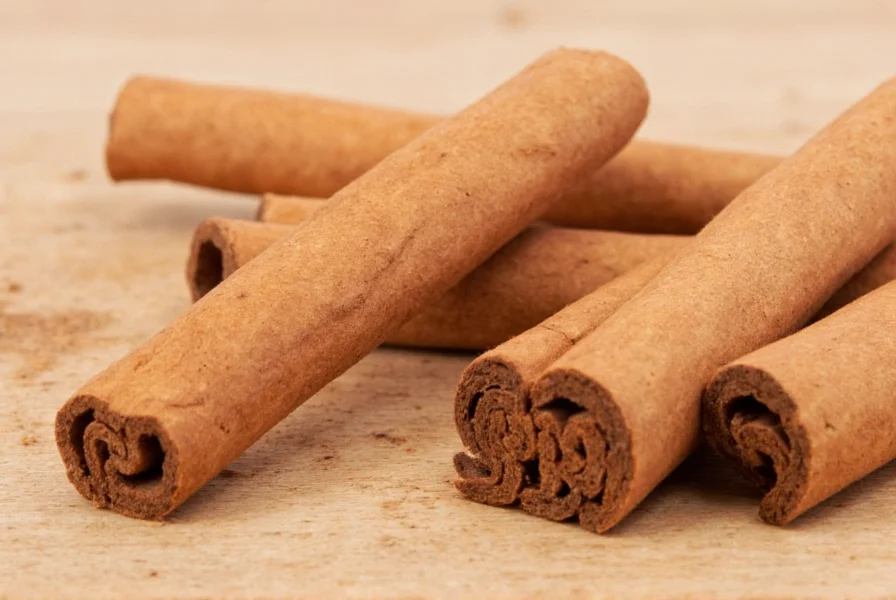For individuals exploring natural approaches to blood sugar management, cinnamon has gained significant attention in recent years. This common spice, used for centuries in traditional medicine, has become the subject of numerous scientific investigations regarding its potential effects on glucose metabolism. Understanding what the research actually says about does cinnamon reduce blood sugar levels requires examining multiple clinical studies and their limitations.
The Science Behind Cinnamon's Potential Blood Sugar Effects
Cinnamon contains several bioactive compounds that may influence glucose metabolism. The most notable include cinnamaldehyde, which gives cinnamon its distinctive flavor and aroma, and polyphenols with antioxidant properties. Researchers believe these compounds might improve insulin sensitivity by enhancing insulin signaling pathways and slowing gastric emptying, which could help moderate post-meal blood sugar spikes.
Two primary varieties of cinnamon exist in commercial circulation: Ceylon cinnamon (Cinnamomum verum) and Cassia cinnamon (Cinnamomum cassia). While Cassia is more commonly found in supermarkets due to lower cost, Ceylon contains significantly less coumarin, a compound that can cause liver damage in high doses. This distinction matters when considering cinnamon supplements for blood sugar control, as therapeutic doses might exceed safe coumarin limits with Cassia varieties.
Review of Clinical Evidence on Cinnamon and Blood Sugar
Multiple clinical trials have investigated cinnamon's effects on blood glucose markers. A comprehensive analysis of these studies reveals mixed but generally modest results:
| Study | Participants | Cinnamon Type/Dose | Duration | Key Findings |
|---|---|---|---|---|
| Ziegenfuss et al. (2006) | 22 with type 2 diabetes | Cassia, 1-3g daily | 12 weeks | Modest HbA1c reduction (0.4%) |
| Vanschoonbeek et al. (2006) | 25 with type 2 diabetes | Cassia, 1.2g daily | 6 weeks | No significant improvement in insulin sensitivity |
| Azimi et al. (2014) meta-analysis | 543 participants across 10 studies | Various doses/types | 4-18 weeks | Small but significant reduction in fasting glucose |
| Allen et al. (2013) | 108 with prediabetes | Cassia, 500mg-2g daily | 12 weeks | No improvement in insulin resistance |
This table illustrates the inconsistent findings across cinnamon blood sugar clinical trials. While some studies show modest benefits, others demonstrate no significant effects. The variability likely stems from differences in study design, participant characteristics, cinnamon type and dosage, and duration of intervention.
A 2019 systematic review published in Nutrition Reviews concluded that while cinnamon may produce small improvements in fasting blood glucose, the clinical significance of these changes remains questionable. The researchers noted that observed reductions typically amounted to only 3-5 mg/dL, which pales in comparison to the 30-50 mg/dL reductions achieved by standard diabetes medications.
Practical Considerations for Blood Sugar Management
If you're considering adding cinnamon to your natural remedies for blood sugar management, several practical factors deserve attention:
- Dosage: Most studies showing benefits used 1-6 grams daily (approximately 0.5-2 teaspoons), though optimal dosage remains unclear
- Type selection: Ceylon cinnamon is preferable for regular consumption due to lower coumarin content
- Timing: Some evidence suggests taking cinnamon with carbohydrate-containing meals may be most effective
- Realistic expectations: Effects are modest at best and shouldn't replace prescribed treatments
For those with diabetes, cinnamon and insulin sensitivity studies suggest potential complementary benefits but emphasize that cinnamon should never replace prescribed diabetes medications. The American Diabetes Association states there is insufficient evidence to recommend cinnamon as a treatment for diabetes.
Important Safety Considerations
While generally safe as a culinary spice, higher doses used in cinnamon supplements for blood sugar control raise several concerns:
- Coumarin content: Cassia cinnamon contains high levels that may cause liver damage with prolonged high-dose use
- Medication interactions: Cinnamon may enhance effects of diabetes medications, potentially causing hypoglycemia
- Pregnancy considerations: High doses may not be safe during pregnancy
- Allergic reactions: Possible in sensitive individuals
Individuals with liver conditions should exercise particular caution with cinnamon supplementation. Those taking diabetes medications should monitor blood sugar closely if adding cinnamon to their regimen and consult their healthcare provider about potential interactions.
Conclusion: Setting Realistic Expectations
The question does cinnamon reduce blood sugar levels doesn't have a simple yes or no answer. Current evidence suggests cinnamon may offer modest benefits for some individuals with type 2 diabetes or prediabetes, but these effects are generally small and inconsistent across studies. While incorporating cinnamon into your diet as a spice is safe for most people, expecting significant blood sugar improvements from cinnamon dosage for blood sugar regulation would be unrealistic.
For meaningful blood sugar management, proven approaches remain foundational: maintaining a balanced diet, regular physical activity, appropriate medication when prescribed, and consistent monitoring. Cinnamon might serve as a complementary element in a comprehensive approach to blood sugar control, but it shouldn't be viewed as a standalone solution. Always discuss any new supplements with your healthcare provider, especially if you have diabetes or take blood sugar medications.











 浙公网安备
33010002000092号
浙公网安备
33010002000092号 浙B2-20120091-4
浙B2-20120091-4